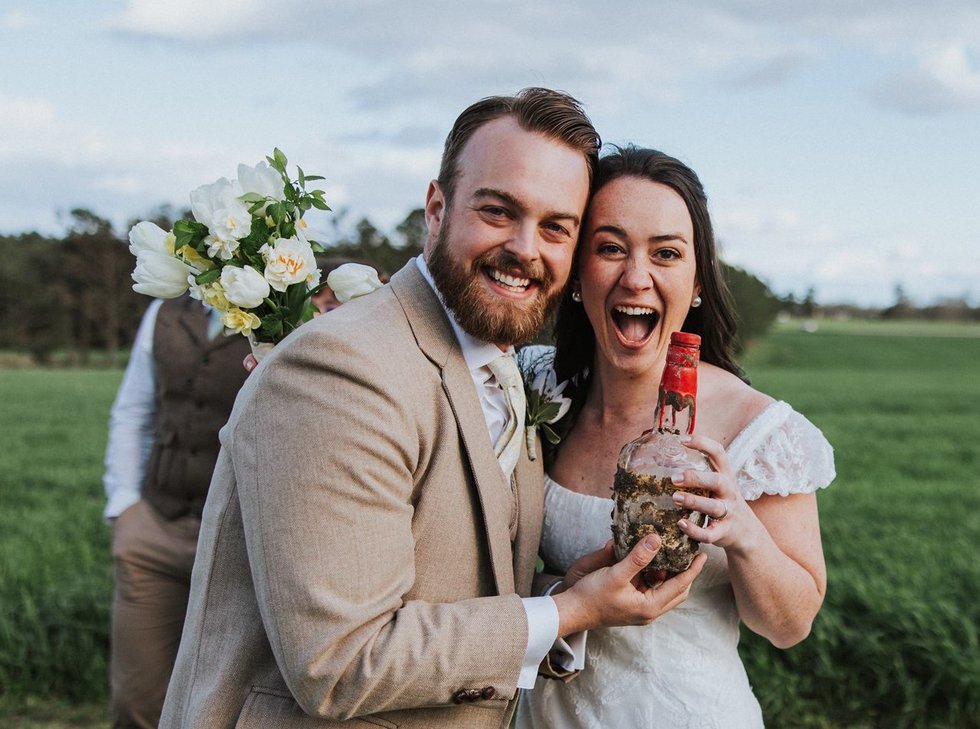Earl Hamner Jr., beloved for his Emmy Award-winning television series “The Waltons,” turns 90 this July, but the Schuyler native is still hard at work spinning stories that celebrate the human spirit.


Earl Hamner receiving the Literary Lifetime Achievement Award from the Library of Virginia in 2011.
Based on Hamner’s novels Spencer’s Mountain and The Homecoming, “The Waltons” aired on CBS for nine seasons from 1972 to 1981 and spawned half a dozen television specials. In each episode, Hamner’s silky, whiskey-tinged Southern accent charmed a nation of viewers—50 million at a time—as the adult John-Boy, who narrates the series.
Before “The Waltons”, Hamner, who served in France in WWII, cut his teeth working as a radio writer for NBC and penned episodes of Rod Serling’s “The Twilight Zone.” The homespun life lessons he absorbed growing up in the Blue Ridge foothills during the Depression led to his novels and “The Waltons.” Then Hamner created the television series “Falcon Crest,” about a Napa Valley wine family, which also ran for nine seasons on CBS.
Recently, Hamner—who lives in the hills of Studio City, California—donated his papers, some 50 boxes of scripts and letters, to the Library of Virginia. “I said how sorry I was to burden them with all the material,” the self-effacing Virginia gent tells me. “They said, ‘Oh, we’ve got a lot of room.’”
Hamner, however, is not content to rest on his laurels. “I don’t feel 90,” he says. He has a blog called “You and Me and the Lamp Post,” in which he riffs about his inspirations and modern-day life, and among other projects, is working on a new scripted television series.
I feel like, as a professional writer, I can write anything. I once said, “In my career, I have written everything but matchbook covers.”
I am working on a new series called “Foundations,” in spite of my advanced years. HBO is interested. They do know that I am an old guy. Usually that’s enough to be refused, but the fact that they’ve already expressed interest, I find encouraging.
I get a lot of fan mail and almost uniformly it says, “When will you do something that I can watch with my family, something that has some meaning, something uplifting, something about decent people? We’re tired of the vulgarity and the violence that we see on television.” That was not the motivation for “Foundations.”
It probably comes from wish fulfillment on my part. I find California in general, at this point in life, full of people who feel entitled to run over you while on their cell phones, or to run you off the road in their car, or to rush ahead of you at every opportunity. It’s not what I am accustomed to. And that kind of feeling got me to thinking about this series, and it’s about a man who is from Virginia, who married a girl who wanted to live in California. They later return to Virginia to revive a neglected vineyard and build a house where his family had lived for generations.
I am trying to celebrate people and life as I know them to be, rather than the necessity to court people with violence and vulgarity. And I do want to show that we can even remake our lives, as my hero does in midlife.
In my writing, I have been inspired by being a Virginian, but I never set out to do a commercial for Virginia. It was just that the background of my growing up there was so inherent in my character that praise and gratitude to Virginia came out.
“The Waltons” was a celebration of our people—I told it in terms of Virginians—at a very challenging time in our culture. Because of the Depression, we were put to a trial, and we were stronger for having come through all that distress and deprivation and self-examination. That generation—my mother and father’s generation—who I observed moving through that time with resourcefulness, with decency, with optimism and with self-reliance, they raised a group of children, young men and women, who later were the ones who had to fight WWII. So it strengthened the generation of warriors to go through that trying period.
We never moved back to Virginia because our children were Californians. Also, if I had come to Richmond, I would have been loved to death.










